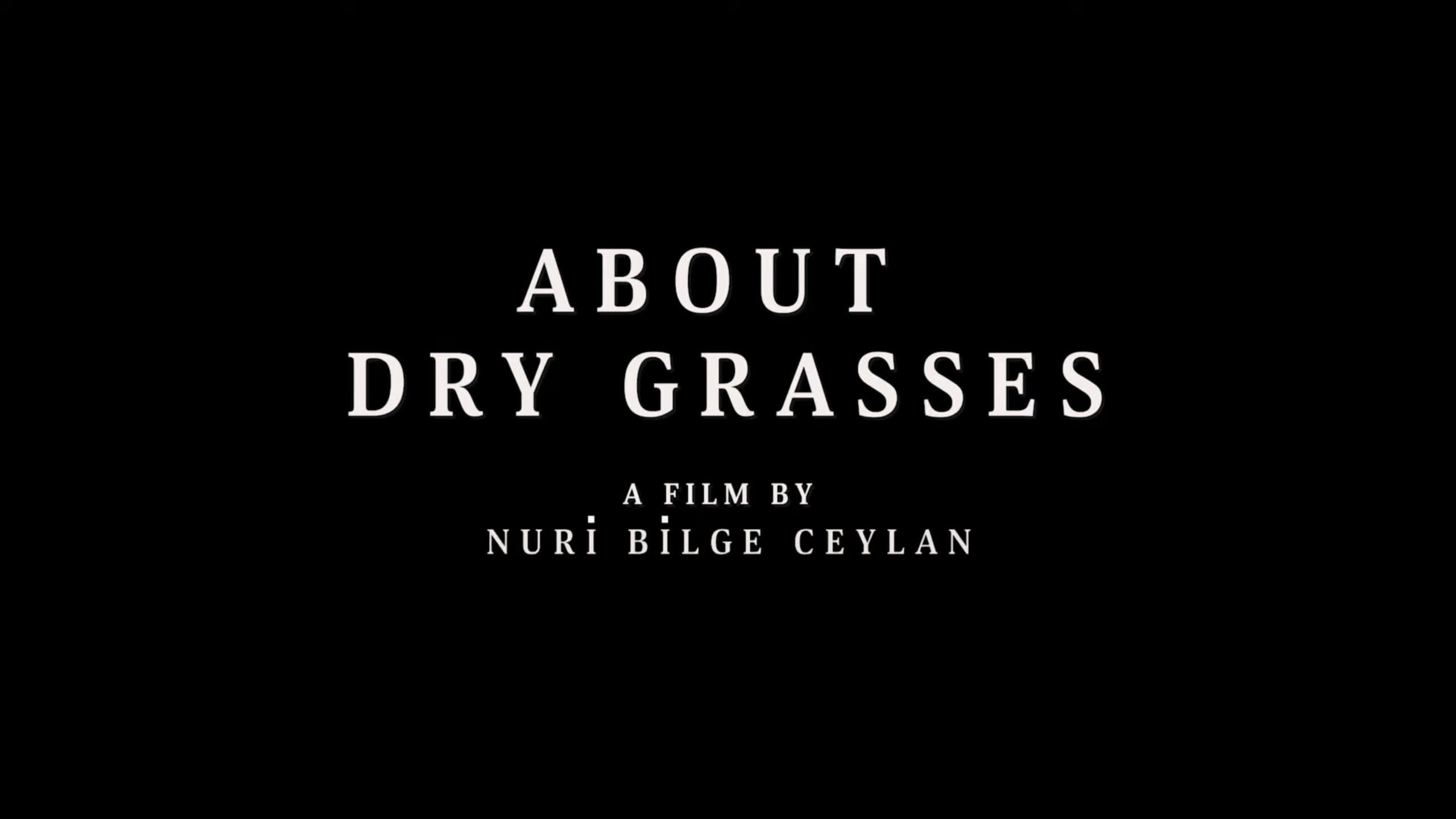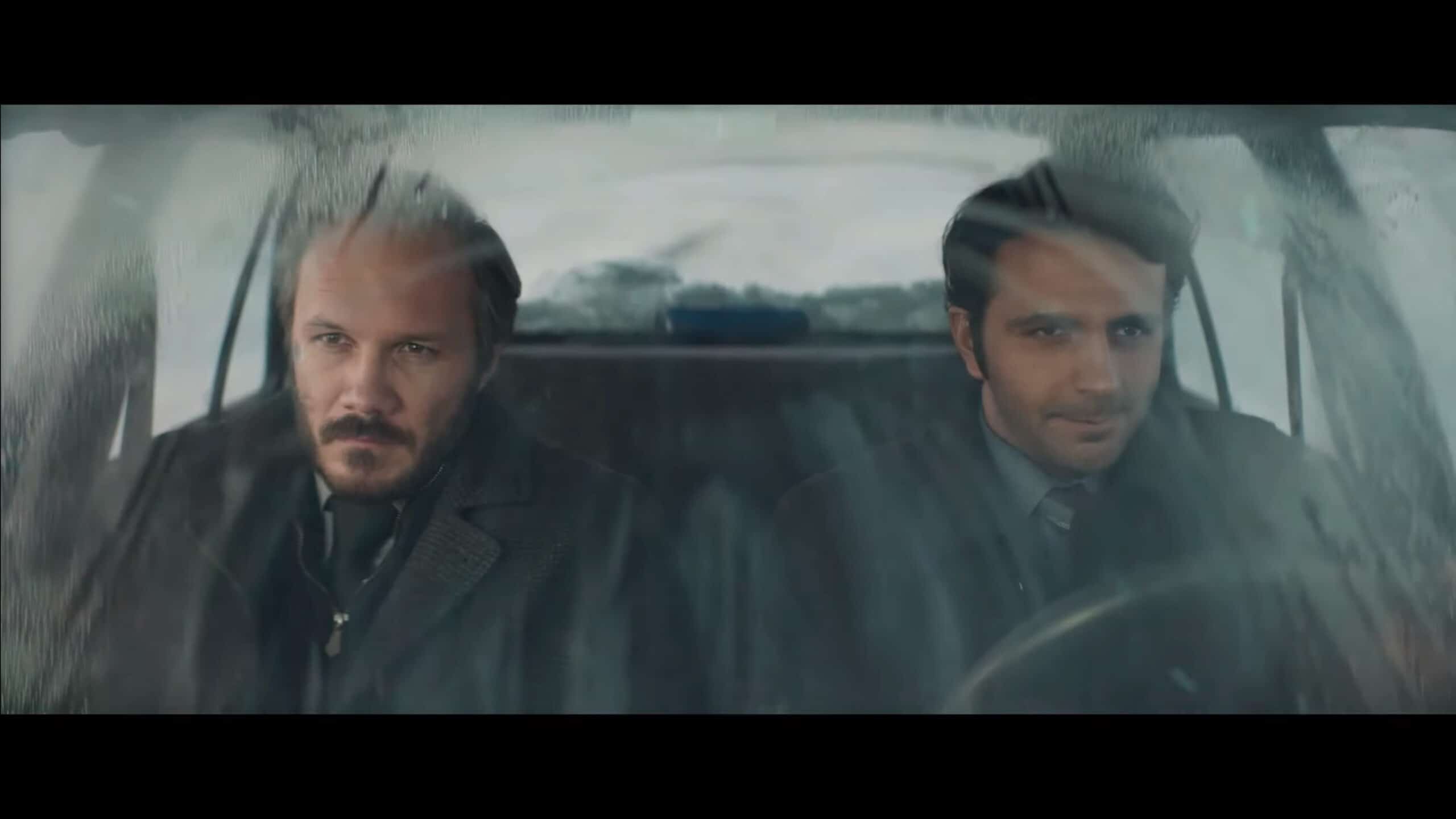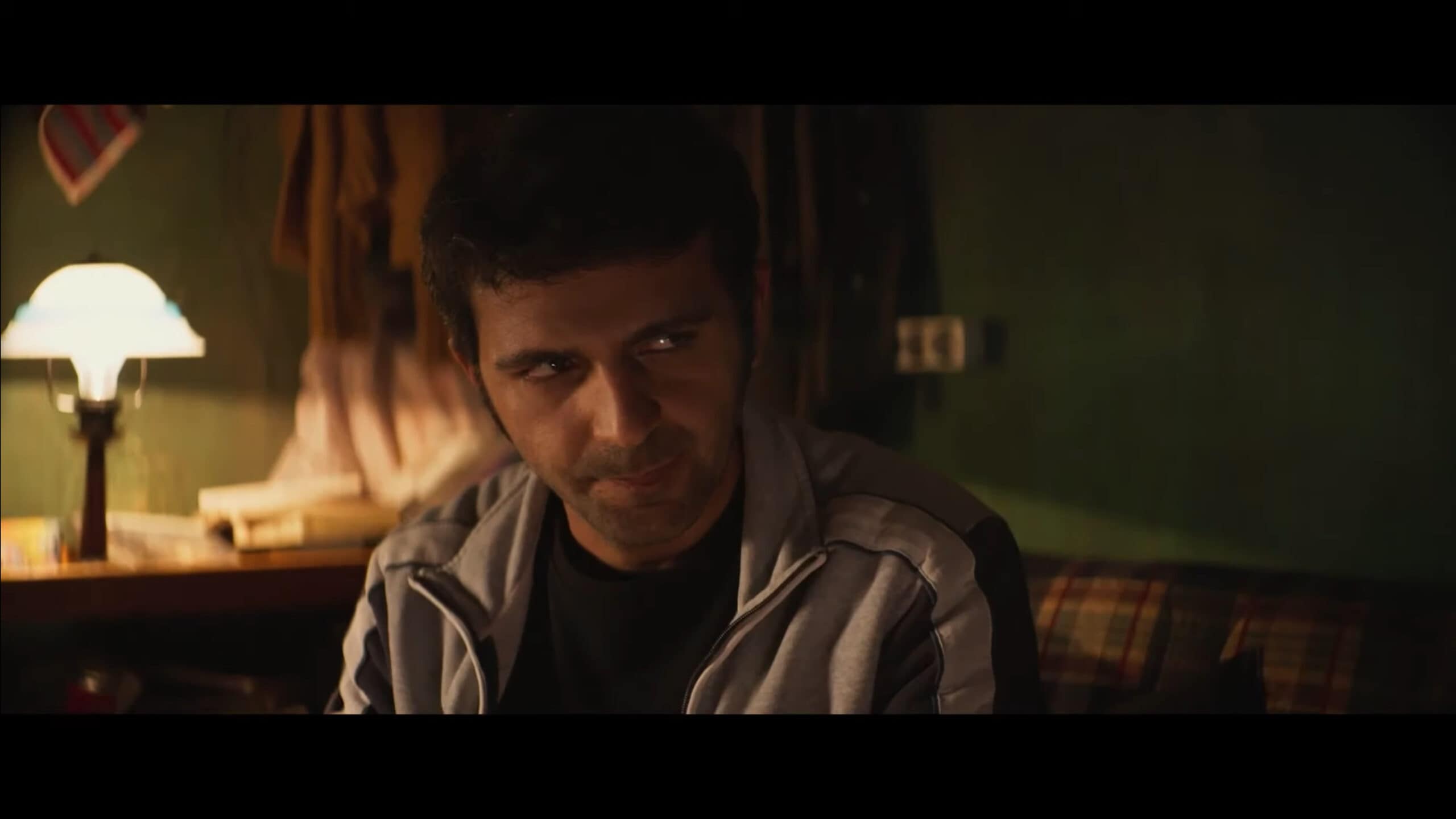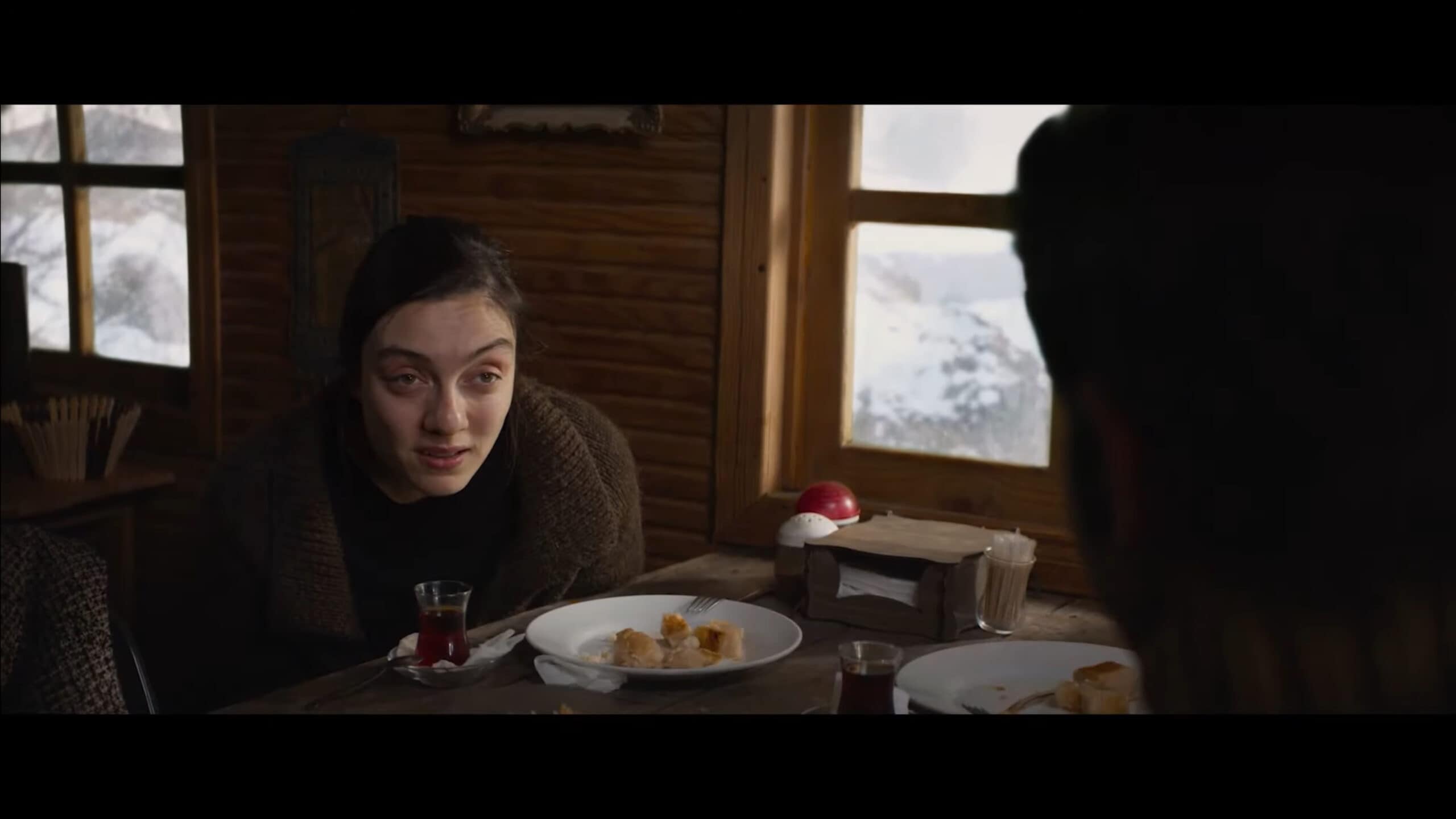About Dry Grasses Review
While we are the first to call to question why any movie needs to be three hours, “About Dry Grasses” makes the best use of its time through enviable conversations and how it deconstructs its lead.

Spoiler Alert: This summary and review contains spoilers.
Additionally, some images and text may include affiliate links, meaning we may earn a commission or receive products if you make a purchase.
“About Dry Grasses” General Information
| Director(s) | Nuri Bilge Ceylan |
| Screenplay By | Akin Aksu, Ebru Ceylan, Nuri Bilge Ceylan |
| Date Released (Film Festival – Montclair Film Festival) | October 24, 2023 |
| Genre(s) | Drama, Romance, Non-English (Turkish) |
| Film Length | 3 Hour 17 Minutes |
| Content Rating | Not Rated |
| Noted Characters and Cast | |
| Samet | Deniz Celiloglu |
| Sevim | Ece Bagci |
| Kenan | Musab Ekici |
| Nuray | Merve Dizdar |
Content Rating Explanation
“About Dry Grasses” contains:
- Dialog: Cursing
- Violence: N/A
- Sexual Content: Sexual Situations
- Miscellaneous: Drinking and Smoking
Film Summary
Page one only contains pertinent spoilers, with page two having ending spoilers and a. Also, images and text in this post may contain affiliate links. If a purchase is made from those sites, we may earn money or products from the company.
After four years of teaching in a small village, Samet is ready to transfer from the rural part of Turkey and teach in Istanbul. He doesn’t hide his ambitions and certainly makes it clear the conservative nature of the area rubs him the wrong way, especially when it comes to the children. However, the children, specifically Sevim, might be his undoing and keep him from leaving the village.
Why? Well, with Samet and his housemate Kenan being accused of being inappropriate, this could end both of their teaching careers. But, with “About Dry Grasses” being three hours, it isn’t just about Samet’s professional life but his personal as well.
Enter Nuray, who is a teacher at a larger village nearby, who finds herself not only becoming friends with Kenan and Samet, but both men becoming attracted to her. Now, whether things are reciprocal on all fronts is hard to say, but it does appear Samet, with his gift for gab, and subtle desires to be rebellious, if not cause trouble, may have complicated his life with his dalliances.
Character Descriptions
Please Note: This character guide is not an exhaustive list of every cast member, and character descriptions may contain what can be considered spoilers.
Samet

An art teacher for four years with an education from the city, Samet feels out of place in a rural village. He is progressive but not necessarily a freedom fighter. He is more so progressive in a selfish way, where he doesn’t like when things around him make him uncomfortable because he disagrees with it. But, nonetheless, he is committed to his work, and while he doesn’t date much, if at all, this doesn’t mean he isn’t interested.
Sevim

A popular girl in her school, and one Samet dotes on, it seems most of the kids and teachers know she is Samet’s favorite. However, how deep their relationship goes comes into question after an incident involving one of Samet’s gifts and a letter she wrote.
Kenan

Kenan is a local, a herder turned teacher with over seven years of teaching experience, who seems to have no desire to leave the village. However, with the constant turnaround of principals and the drama of an accusation hanging over his head, life has become chaotic, and then add in Nuray and the possibility of something being there? Kenan’s emotions are flared up.
Nuray

An English teacher, and survivor of an explosion that took her leg, Nuray is at a new chapter of her life. Gone are the dreams of her youth; for now, she focuses on the ideal, and with losing a leg, she is getting reacquainted with her body and her sexuality and seems ready to settle down with someone stimulating.
Collected Quote(s)
It wasn’t a dream, it was an ideal.
— Nuray
Review
Our Rating: Positive (Worth Seeing) – Recommended
Notable Performances or Moments
Nuray’s Conversation With Samet
As you can imagine, in a three-hour drama, there is a lot of talking. Most of the back and forth is rather forgettable, except for Nuray’s conversations since she is one of the few who don’t side with or put Samet on a pedestal. She challenges him and calls him out, and in a dinner scene, when Samet intentionally omits Kenan, there is a push beyond the superficial.
You see, Samet, as much as he may express his dislike for how things are in the village, if you ask him direct questions about his personal thoughts or feelings, he can get dodgy. Think of a politician who is talking about a subject that could lose them constituents. But, in Samet opening up for the first time and Nuray getting to match wits, if not cut away at Samet’s façade with ease, you get the kind of conversation that will make you want to rewatch this movie.
For, even beyond Samet, Nuray talking about her beliefs, her future relationship prospects, and her idealism vs. Samet’s, it is probably one of the best conversations I’ve seen in any form of media, whether on stage, television, or the big screen.
It truly is an enviable conversation for as much as Nuray is trying to understand Samet, and we watch him defend himself and even challenge Nuray, leading to moments where you think she perhaps can’t stand him; there is this level of engagement that feels too real. It makes you feel like a voyeur or a spirit watching two humans go back and forth, and within the conversation are gems you’ll wish you were able to note verbatim.
I really can’t say enough about how the dinner scene makes you want to know which of the three writers crafted that scene so that you can find their other work and follow their career.
On The Fence
Three Hours Of Samet Talking And Yet Feeling Like You Learn So Little
For the most part, “About Dry Grasses” is a deconstruction of Samet. It picks apart his place within the society of the small village. As a teacher, especially in an Eastern European country, his position has prestige, commands respect, and is seen as something of value. This leads to an ego within Samet and even a superiority complex as he is from a more liberal area and finds the inability of girls like Sevim to wear makeup or write letters to crushes absurd.
But, through Nuray, there is a means of breaking past Samet’s high and mighty persona. Now, as mentioned, he does duck and dodge certain questions and really presents a challenge for you to get to know him beyond how others see him. In some ways, this increases the intrigue, but in time, it becomes tiresome.
This especially becomes true as you wonder, with Nuray talking about her family and Kenan about his, what is Samet’s background? He isn’t particularly religious, but what is his relationship with his family, assuming he has one? Is his only conversations with people in the village and Nuray? Who truly is this man beyond his ambitions?
You’d think in three hours you’d have a definitive answer, but you don’t. You will know Samet is conniving, petty, selfish, and masks many of his true feelings and intentions, but as for who he is? What led to him becoming this way or even becoming a teacher? That isn’t dove into.
Who Is This For?
Those who enjoy engrossing dramas that seek to pick apart its lead in nearly every aspect of their life and flesh them out to the point of feeling like a voyeur. Yet, like any voyeur, you find yourself only getting to see what wants to be seen, and the depth of the person you are watching cut off.
Recommendations
If you like this movie, we recommend:
- Malcolm & Marie: If you want back-and-forth conversations, which can get to the point of feeling like a lot to take in, “Malcolm & Marie,” starring John David Washington and Zendaya, just those two, is recommended.
Check out our movies page for our latest movie reviews and recommendations.
Images used for editorial and commentary purposes. All rights remain with their respective copyright holders.


